Seminar Blogs
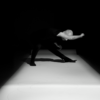
“From Linelanders to Geographers of Thought” – Laura Jimenez Rojas
The first TiM session of 2019 had a great beginning. The guest was the anthropologist Tim Ingold. The talk was about “On Doing Undergoing: experience, imagination and the principle of habit”. We had the opportunity to have a glimpse of Ingold’s phenomenological approach in the context of his “dwelling perspective”. The guiding question for this session was:…
Read more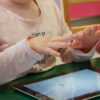
“My mother against a mouse: thoughts about haptic devices” – Jose Hopkins Brocq
When I was 12, I remember my mother having problems to interact with our computer. She constantly complained about the problems she had with her eye-hand coordination when it came to moving the cursor or pointer. In other words, she had problems with the mouse. Looking back, I could now assume her discomfort was caused…
Read more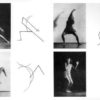
“Exploring Movement, Embodiment and Gesture with Mathematics” – Mavi Irmak Karademirler
The last seminar by Nathalie Sinclair made me think about the relationship between mathematics, gestures and the role of our bodily movements in doing, learning, understanding mathematics. Discussing the current position of touch-screen technologies, from the case of TouchCounts– an application Sinclair developed for mainly performing multiplication- we went on to think about multiplication as…
Read more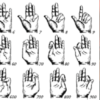
“‘Fingerprints’ from Analogue Counting to Touch-Base Interfaces” – Laura Jimenez Rojas
An apparent oxymoron was brought to the TiM seminar: tangible mathematics. Nathalie Sinclair introduced an interesting connection between embodied cognition in mathematics and digital technologies. Currently, she is working on the development of a multimodal app that helps young learners to expand the faculty of number sense. Sinclair alluded to the concept of multiplication as…
Read more
“An enactive approach to learning” – Gido Broers
Initially, it was difficult to understand exactly what Nathalie Sinclair was talking about in her seminar, which was called “Multiplication as Experience: Whitehead, aesthetics and gesture-based, touchscreen technology”. It took some time before I realized that the educational tool that Sinclair proposed – TouchTimes, a touchscreen application with which young children practice the skill of…
Read more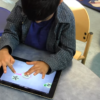
“What Is the Role of Digital Play in the Future of Education?” – Dennis Jansen
The question that makes the title of this post is one that has been around for quite a while. Already in 2003, when the field of game studies was only just beginning to find its feet, James Paul Gee wrote What Video Games Have to Teach Us about Learning and Literacy, and many teachers and…
Read more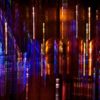
“The Museum as a Constructed, Performative Space” – Mavi Irmak Karademirler
Sarah Bay Cheng’s talk “Everybody’s Historiography: History, Performance, and Playing the Digital in Museum” pointed out to several ways of approaching the digital history, which could be examined around a performance spectrum. Drawing mainly from her experience in the POLIN Museum in Warsaw, Bay-Cheng highlighted some of the critical issues arise with the digitisation of…
Read more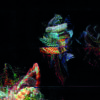
“The authenticity of documents and strawberry flavour.” – Jose Hopkins Brocq
When reflecting upon the potentials of mixed realities, we can’t avoid wondering about the possibilities and implications it may have; not only in our relationship to the world but also how the world will react and change. Shifting our gaze beyond ourselves into non-human rhythms and languages could bring into appearance a series of alien…
Read more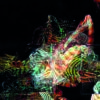
“An interactive approach to history” – Gido Broers
Sarah Bay-Cheng, who is an excellent speaker, explained in her seminar “Everybody’s Historiography: When Museums Play Digital Games” how museums nowadays use digital and interactive elements in their exhibitions to make the visitor more than just a passive voyeur who perceives a representation of a certain historical event ‘as it is’. Instead, the visitor is…
Read more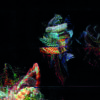
“The Museum between the Physical and the Virtual” – Dennis Jansen
One of the major themes in Sarah Bay-Cheng’s recent lecture on “History, Performance, and Playing the Digital in Museums” was the use of mixed reality in modern museums; that is, the blending of physical artefacts and set pieces with digital interfaces, screens and games. She argued that, as museums engage increasingly often with digital technologies,…
Read more
